Words by Romina Tello
Waste management has become one of the most pressing issues in the southern region of the Nicoya peninsula. Like many tourist destinations, the stretch of land from Manzanillo to the Reserve of Cabo Blanco (Hermosa, Santa Teresa, Carmen, Malpaís) was developed very fast but with poor infrastructural planning, resulting in overflowing bins on the streets, polluted rivers, and a general lack of understanding of our waste’s life-cycle and management opportunities.
This article aims to shine a light on the existing possibilities to recycle in Santa Teresa, Malpaís, and the region. Whether you own or work for a business or institution, or reside in the area, the solution—and the responsibility to care for our waste—applies to all of us.
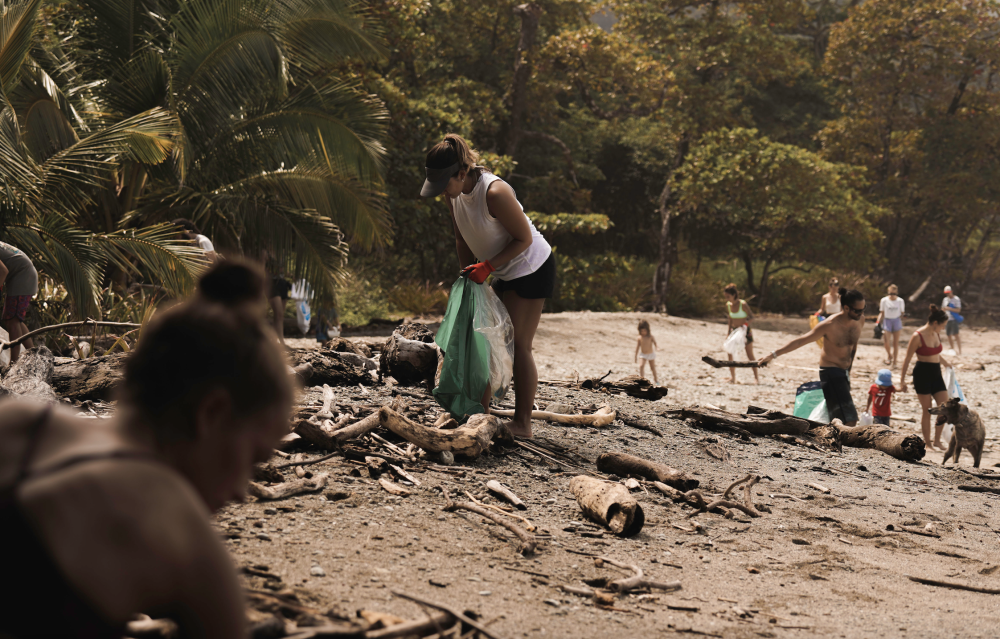
The successful management of waste starts with its efficient sorting. Following proper segregation practices, an average household could reuse up to 80% of the residues they produce by composting organic waste (55%) and sorting recyclables (25%). The remaining 20% of ordinary, mixed trash is what the Municipality can collect to be buried in a landfill.
When it comes to recyclables, these are the items that you should segregate:
GLASS BOTTLES (avoid mixing flat glass, mirrors, and light bulbs)
PLASTIC BOTTLES AND CONTAINERS (numbers 1, 2 & 5 and avoid plastic bags, wrappings and plastic numbered 3, 4, 6 & 7)
ALUMINUM CANS AND TINS (not aluminum foil though)
TETRAPACK (other forms of carton and paper are not collected by the recycling company)
For these items to be recycled and not just “wishcycled,” you must make sure that they are clean (rinse off any food & drink residues), dry, and packed in a transparent bag or box. This is the only way for the recycling collector to recognize and pick them up, so they don’t end up mixed with and by the ordinary Municipality waste trucks.
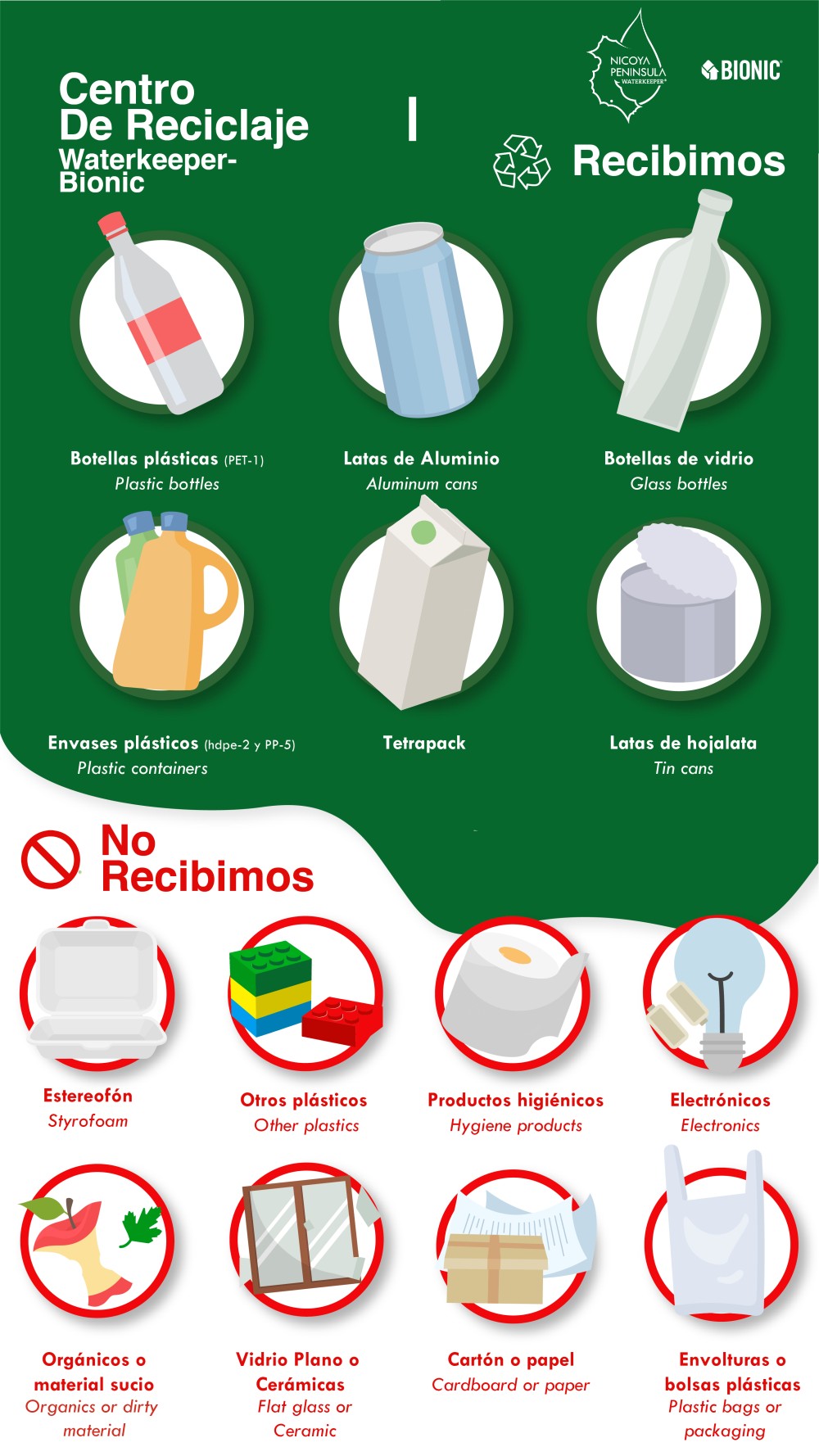
The initiative of recovering valuable recyclables in the region is led by the local NGO Nicoya Peninsula Waterkeeper. They have a weekly collection route to recover recyclables at your doorstep and their widespread recycling stations. Their collection route and schedules look as follows:
MONDAY 8am-2pm: Cóbano & nearby communities
TUESDAY 8am-2pm: Santa Teresa & Playa Hermosa
WEDNESDAY 8am-2pm: Malpais, Playa Carmen & San Isidro
FRIDAY 8am-2pm: Montezuma & Delicias
If you wish to add your residence or business to the existing route, you can do it simply by contacting Ariadna from Waterkeeper on the number +506 8330 2970. Alternatively, you can drop your clean recyclables in the recycling stations spread throughout the region, as shown in the map below:
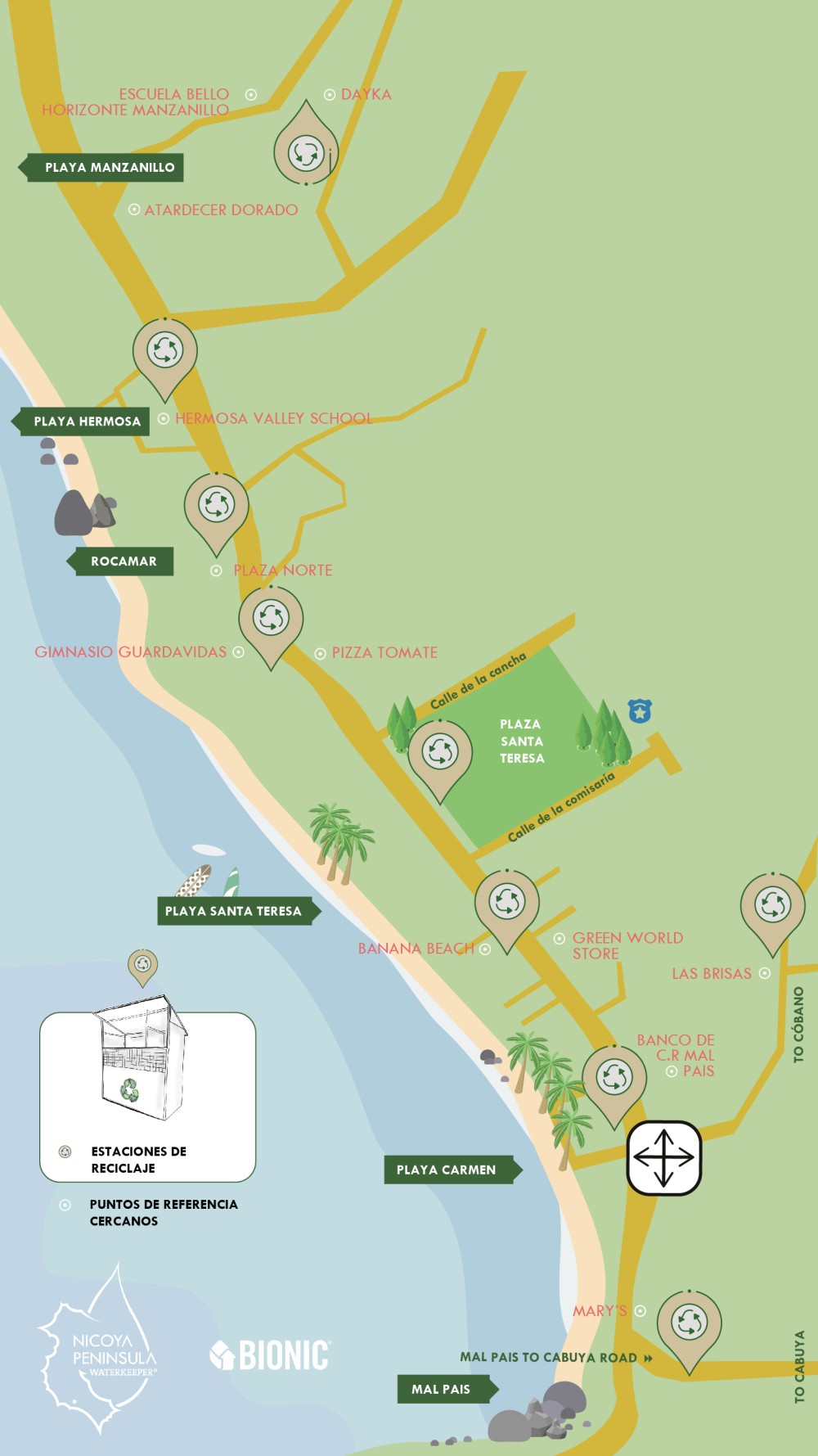
Nicoya Peninsula Waterkeeper has partnered with the material engineering company BIONIC in order to process all the collected plastic and transform it into high-quality polymers, such as clothing, footwear, furniture, luggage, and more. The rest of the recyclables are exported from Costa Rica for their final handling in Guatemala.
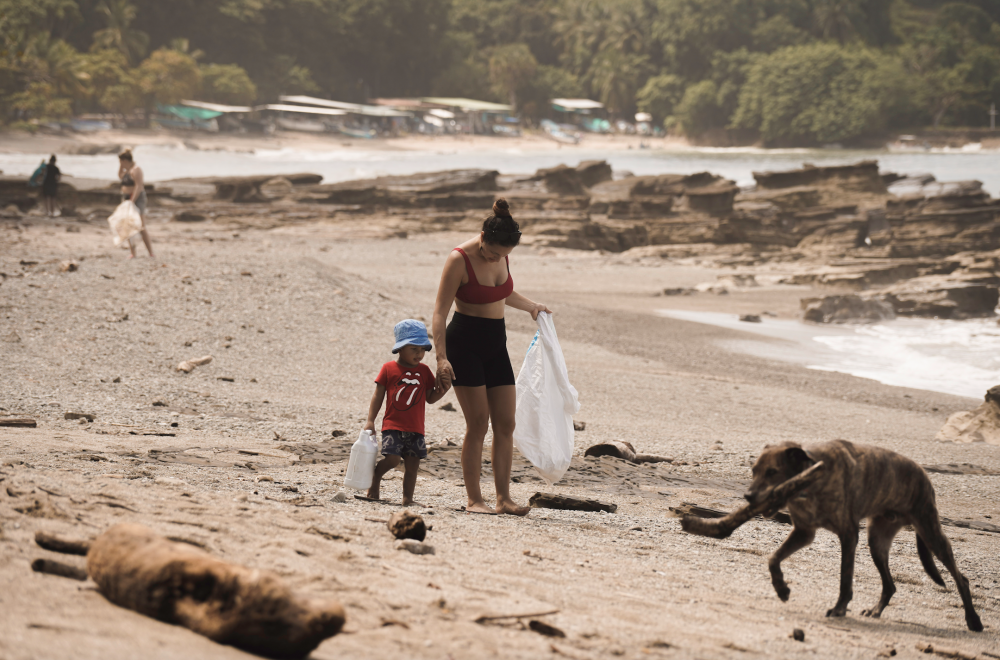
Recyclables only make up 25% of the average Tico household bin, so there’s a lot more to do in order to manage our waste responsibly. We’ll share with you some easily implementable actions below. If you wish to learn more about any of these topics in the region of Santa Teresa, please drop us a line with your questions and suggestions. We would love to hear from you!
COMPOSTING: There are many methods to make composting easy for homes and businesses. Check out the solutions offered by Terrakura Organic in terms of composting bins, microorganisms, and training on how to do it according to your needs.
You can also swing by Zūnya and meet with our landscaping team or attend one of Irene’s workshops to learn how we manage our daily 12 to 70 kg of food waste.
USED COOKING OIL: Collect all oil leftovers in a glass recipient and give them to Aceites Palmares on their monthly visits to the region. They transform it into biofuels and feed for cattle.
NON-TRADITIONAL WASTE: For everything ranging from batteries to expired medicines, electronics, mattresses, construction waste, and more, check out this list of certified waste managers in the country.
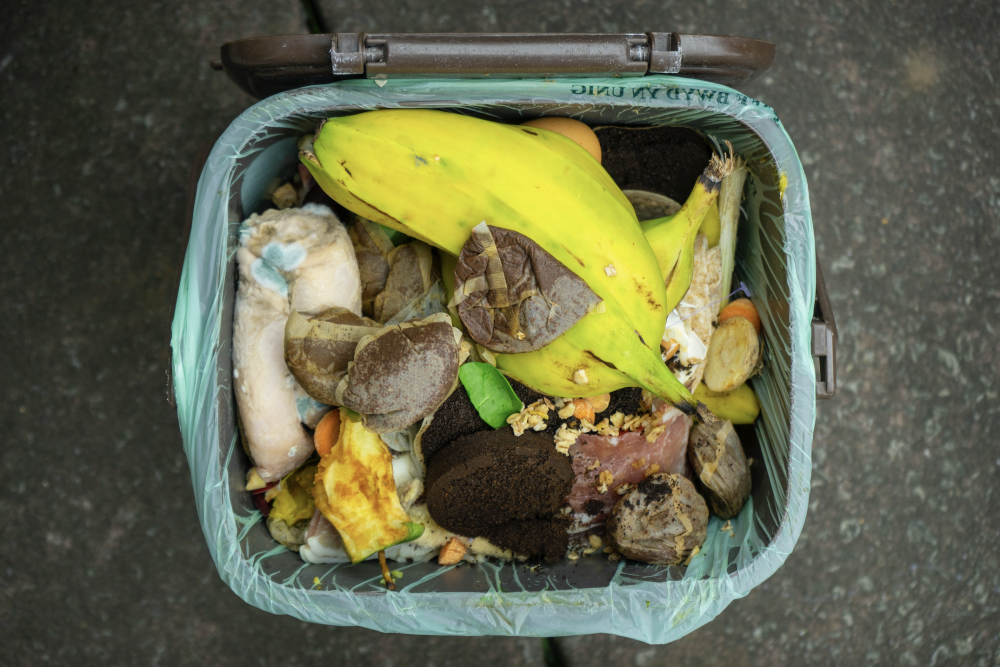
Despite the great work that the above-mentioned organizations are doing to manage waste, recycling alone won’t solve the environmental crisis we are in. The main impact is generated by reducing our consumption of waste from the beginning, which requires us to be mindful of the items we purchase at all times.
Favor packaging-free alternatives or those made with fewer harmful materials, such as paper, carton, and bamboo. The key is to refuse, reuse and recycle—in that order!
. Grains & spices: Green World
. Fruits & veggies: Wherever you shop, opt for products without plastic bags and wraps
. Fresh fish: Bring your own container to La Pescadería in Malpaís
. Sweets and gifts: Local market every Saturday at Playa Carmen (3:00 - 6:00 pm)
. Sanitary products: Leffas Natural
. Tea & apothecary: Irene La Herbolaria, Selva Sagrada
. Others: Baula | Green Solutions CR | Compra Sin Plastico

